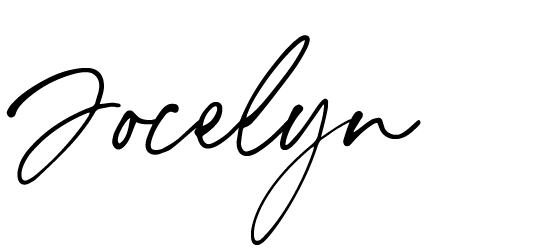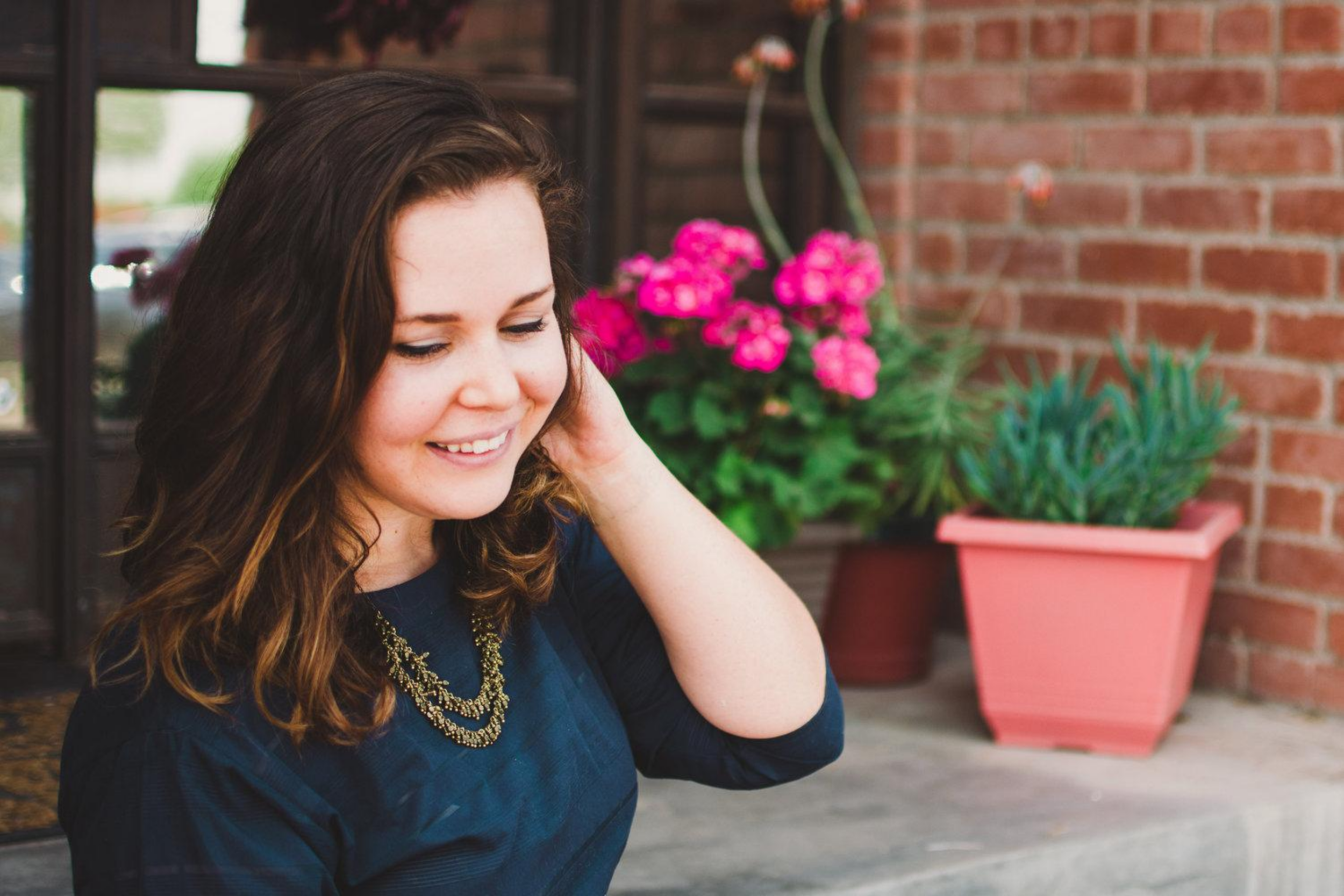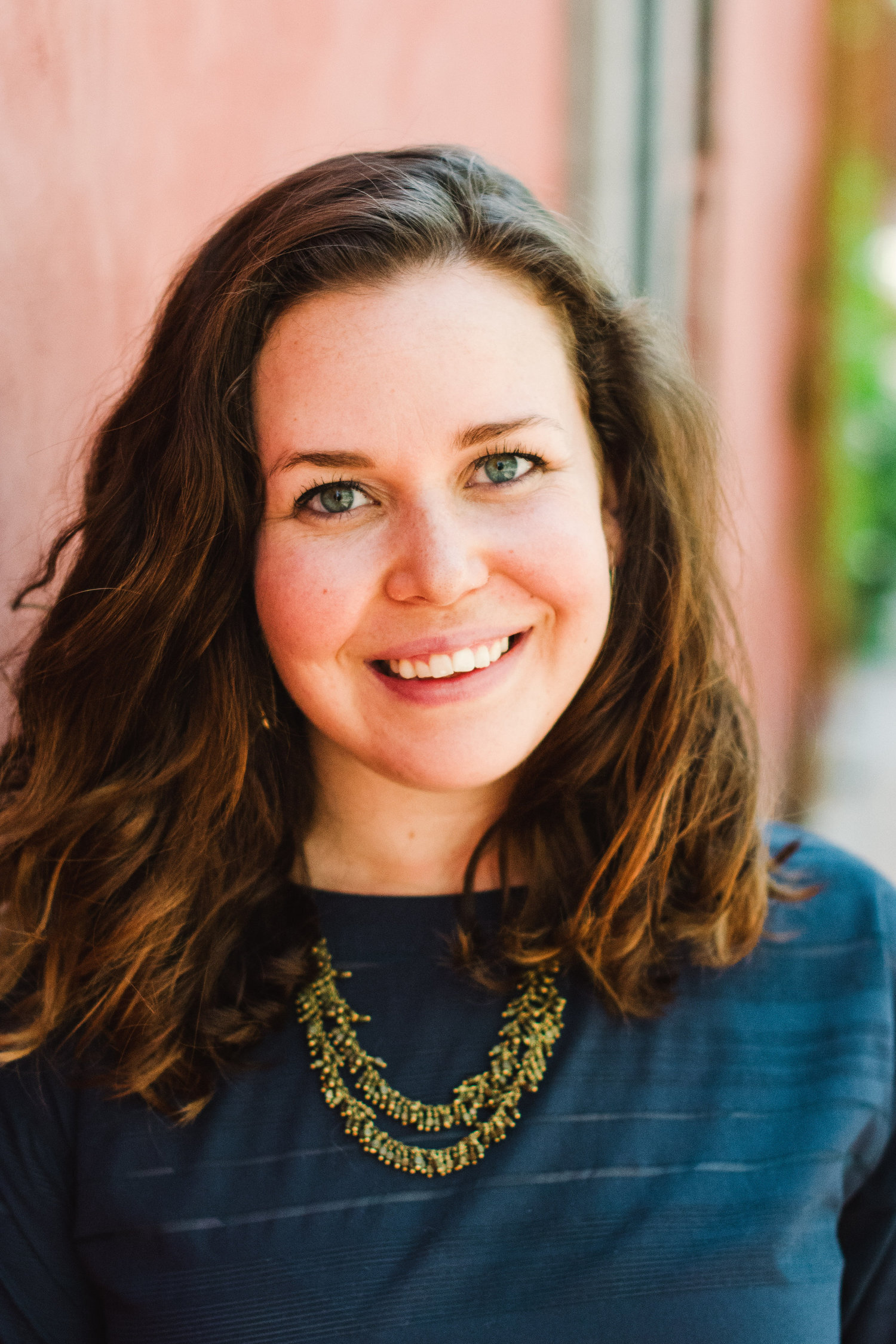Theresa Delaney On Being A Self-Employed Creative
Theresa Delaney is the founder of the Creative Tribe Workshop, a fun space where people with common interests and the desire to create can meet each other, learn and cultivate community! Although it's fairly new to Tucson, AZ, it has caught on like wildfire and now, just over a year later, the Creative Tribe Workshop has it's own studio from what just started as sporadic workshops here and there.
Before the Creative Tribe Workshop she had already been self-employed and continues to freelance different services that help companies/individuals clearly communicate their brand and their ideas! Theresa specializes in brand identity, brand voice, and messaging/website audits.
As a mover and shaker of Tucson, AZ - Theresa shares her insight on finding her niche, how the Creative Tribe Workshop came to be and what it takes to be a self-employed creative!
What inspired you to leave your full-time job? Were you scared? Or did you just feel ready to do it?
Luckily I had a safety net where I was working at Tucson Foodie, a local food magazine, part-time. So he let me come on as a part-time employee so that I could at the very least cover my base overhead expenses - rent, utilities and food. So it was definitely the right time for me. I knew when I left my agency job that I wanted to at least try working on my own before I went off and try to get another agency job. I had it in the back of my mind that I could always go and get another job. That was always an option. Even if it just meant working at a restaurant or something! I’d find it. So I thought there was no harm in taking a few months to just try and see what I could make of this self-employment thing and see if I liked it. Two years later, it’s working!
Did you always know that your were into brand identity development and copywriting?
No, not at all! When I was in college I was studying communication but I didn’t really know what I wanted to do with it. I was interested in advertising because at the time I thought that was the only profitable way to get a creative job. I’m very much left/right brain split, so I thought advertising would be a great way to combine that creative side and that logical side. I didn’t know that there were alternatives to that advertising agency experience, so that was my goal.
Then in my junior/senior year I realized there were creative agencies beyond just advertising – that involved public relations, social media, branding work, writing and all these other facets of the creative world that were beyond just print ads. At my job, I was doing some design work, writing work, some social media and some PR. So when I left my job, I was trying to do everything. I was offering all of those different services. Slowly I realized that was not the way to stand out as a solo entrepreneur and just started narrowing in on those things that I felt really strongly about and that I was best at (and also could produce the fastest with the highest quality results).
“Before you make any huge investments in what you’re doing, I think it’s important to really narrow in and figure out what’s really special about what you have to offer, how you can differentiate yourself and make sure that that is something people are looking for.”
Social media I eliminated pretty quickly. Sometimes when you’re doing social media management, you’re tied to the accounts 24/7. I’m very big on having freedom in terms of my schedule, so I wanted to be able to work on my own time and not be obligated to be checking in on something at the same time every single day. Public relations…there’s just so many people that do it so much better and I’m pretty introverted so wasn’t the best option for me.
It came down branding, copywriting, and graphic design. Though I love graphic design, again, there’s so many people that do it so well, who aren’t self taught and know everything you need to know about design. While I can do design work for myself, it was always stressful doing it for other people. I wasn’t sure if it measured up to what they were expecting or what other people could do for them. I realized branding was the red thread that ran through all those services that I was enjoying. It was the strategy work of building a brand identity for a business and creating a foundation of how they’re going to operate in terms of their mission and their values. The second part of that being the copywriting, where you take that brand and you articulate it so you can share your message with your audience. As soon as I narrowed in, that’s when I really started to see my business picking up.
What advice would you give to anyone who wears many, many hats, also wants to leave the 9 to 5 and start freelancing on their own but doesn’t know exactly where to start? Or is afraid to?
First and foremost, I’d say it’s definitely worth trying. It’s well worth trying to pick up a few freelance clients while you’re still working at your 9 to 5 and you have that security net. You can fire some test bullets and see if what you have to offer is something other people are looking for. That’s my first advice - always just try it out and see what happens because you can almost always backtrack to what you were doing before.
My second one would be to, from the beginning, really try to identify what your biggest strength is and how does it line up with what your target market is looking for. My approach going in (doing a whole variety of different things) worked out in the end because I was able to quickly eliminate what I didn’t want to be doing. But if I knew exactly what I wanted to be doing from the beginning I think it would’ve been a lot more lucrative, sooner. I needed that time to figure out what my best strengths were. Before you make any huge investments in what you’re doing, I think it’s important to really narrow in and figure out what’s really special about what you have to offer, how you can differentiate yourself and make sure that that is something people are looking for. It’s easy for creatives to get really wrapped up in what we’re good at or what we like doing, but from a business perspective, you have to make sure that there are people willing to pay you for it. Find a balance between those two.
“Creative Tribe Workshop really evolved out of the feeling that I needed to connect with other people.”
So you have your freelancing stuff going on, where did Creative Tribe Workshop come into play? How did that idea pop into your head?
Creative Tribe Workshop really evolved out of the feeling that I needed to connect with other people. I had been doing this self-employment thing for about six months and I was working from home and the occasional coffee shop but all of my clients were online. I was really just at my computer in my office all day, working by myself. While that sounds like the dream for a lot of people, for some creatives especially, it’s hard to find new inspiration, get feedback and meet people that share your point of view (or share opposite point of views) when you’re stuck in that bubble.
Having graduated from school I didn’t have a network I could tap into. When I graduated from UA (as frequently happens) my friends left. They moved to other cities to pursue what they were doing and I stayed in Tucson. So I was kind of left scrambling to figure out, who do I go to the movies with? Who do I call if I want to go to dinner? I had my boyfriend, but it’s different when you have your group of friends that you could go to. So it was really those two needs.
I was seeing these events happen in other cities, and thinking, "Oh, I would love to go to a weaving workshop," or, "I would love to go to a panel discussion on Instagram!" – things like that. And I thought, why isn’t anyone doing that here? The first workshop was in September of 2015 and that was with Paige Poppe, a really talented Phoenix-based artist. She came down and ran a notebook painting workshop and the response was really incredible from people saying this was exactly what they had been wanting.
Did you see it becoming something like this, where you had to get a studio or was it just kind of like an event here and there type of thing?
It was definitely an event here and there type of thing, up until…really this past summer. This past summer people were asking for more. I was getting approached by people that want to be guest experts and people that wanted to be involved. I’ve realized that there was a lot of potential and it was something that I was really invested in. I asked myself, "Am I going to let this grow into it’s own business?" And I thought yes, I’m going to make space for it. I started planning the next few workshops and that’s when Peach Properties kind of dropped this studio onto my lap about a month later. It was kind of a sign that, “Okay, am I doing this? Yeah I’m doing it!” It was totally not on my radar but as soon as the option presented itself I was like...I need to do it!
“Creativity was the perfect way for people to start learning together and make those connections and really be able to take those and build on them after the event, which is what I was really hoping.”
What has been the biggest surprise that you’ve encountered since beginning the Creative Tribe Workshop?
The first surprise was definitely the reaction I got from other people. I knew this might be something fun to do but I really had no idea that other people were so adamantly looking for something similar. I had a hunch but it was really surprising when people were very, very excited and responsive to it.
The second surprise was how effective the model ended up being. From the first workshop, I saw that bringing in the creativity element served as the perfect facilitator! People had conversations and got to know each other without the pressure of networking or forced conversation or trying to really quickly bond with someone over something irrelevant to them. Creativity was the perfect way for people to start learning together and make those connections and really be able to take those and build on them after the event, which is what I was really hoping. This wouldn’t just be, come to our event, make some friends and you’ll see each other at the next Creative Tribe event. It’ll be come make friends, see each other in a week and then come back to the next event together. Bring someone else into the fold.
Why Tucson?
I guess that would be another surprise…how ready Tucson was for something like this to happen and how willing it is to welcome new communities. The existing communities that are already here in Tucson are just very supportive and rapidly growing. I think Tucson’s just very open to new things versus some other cities I’ve been in. It’s growing really quickly and that makes it the perfect place to experiment and try new things and meet people, too. Just because we do have that small city, big town feel.
As someone who is a brand identity strategist, if someone has an idea for a brand, what are the first things that they should hone in on?
I think first and foremost is asking yourself, “Am I invested enough in this idea to carry it for the next few months, years, even longer than that, potentially? Am I the right person to carry out this idea?” I think that’s one question that’s really hard for people when they have an idea to face is, “Do I have the skill set to get this off the ground? Do I need to bring in someone else? Should I find a partner? Should I pass this idea on to someone? Am I capable of building the skills I need to really make this happen?”
Then once you identify, “Yes, this is something I want to make happen and something I can do,” I think the next step is to just start firing those test bullets and put out one product or put up a landing page or create a free opt-in or post one event and just see what the reaction is. In terms of making big investments, I would always encourage someone with a new idea to go in cautiously, financially. There are so many ways to get an idea off the ground without making a huge investment (unless you’re developing some kind of technology or high end product). There are still ways to even test those kinds of ideas without making that big spend. So tapping into your network, finding people who are willing to trade services or offer you help, or answer questions for you. And not being afraid of asking them, “Can I buy you coffee? Can I buy you lunch? Can I just ask you a few questions?” Or just investing in really low level options like consulting hours. Invest in an hour with someone that can help you, spend a hundred bucks to do that and get some of the answers you need. Take advantage of those opportunities, then see what happens from there. Be willing to adapt your idea to make sure it fits from the responses you get from your audience. Make sure you get outside audiences and the people that you want to (eventually) give you money for it. You need to be listening to them along the entire way and make sure that what you’re doing is fitting with what they are looking for.
“When you go into business on your own, there are so many different facets beyond just the work that you’re passionate about.”
I feel like some people have an idea for a brand and usually just go for it without really sitting down and thinking what their brand identity even is. So what would you explain as being brand identity?
There are so many definitions, but when it comes down to it, it’s really the core of your business and how you make all of your decisions. What guides your decision making from the top down? So from the CEO down to your interns. What are those values and those ideas that are really steering the ship for you? It’s all about consistency and really being aware of how your audience sees you, too. For me, brand identity encompasses so many different things but the main component are your mission (Why are you doing this? What are you trying to accomplish on a larger scale?), your brand values (What are those key things that are really helping you make big decisions and deciding which direction to go in? - You’re going to encounter so many forks in the road and your values are what are going to tell you the right way to go!), and then brand voice, which is something I specialize in, is applying your brand identity to your communication and your messaging. Making sure very piece of communication you put out (whether it is verbal or visual) is really consistent and expressing that brand identity for you.
What would you say are three character traits someone should acquire if they want to be self-employed?
My top three are creativity, a collaborative spirit and discipline. When you go into business on your own, there are so many different facets beyond just the work that you’re passionate about. Accounting, customer service, content development, marketing, etc. In the beginning, you have to get creative and figure out how to actually operate a business. But it’ll be significantly easier if you are willing to collaborate and seek out partners that you can help and who can help you in turn. Whether it’s a trade of services, or partnering on a promotional event or simply just learning from each other’s experiences. Of course, when your budget is tight, there are some things you’ll have to just do yourself and that’s where the discipline comes in. You’re running your own schedule, so it’s up to you to put down the fun tasks and enter your receipts or schedule your Instagram posts or whatever it is.



